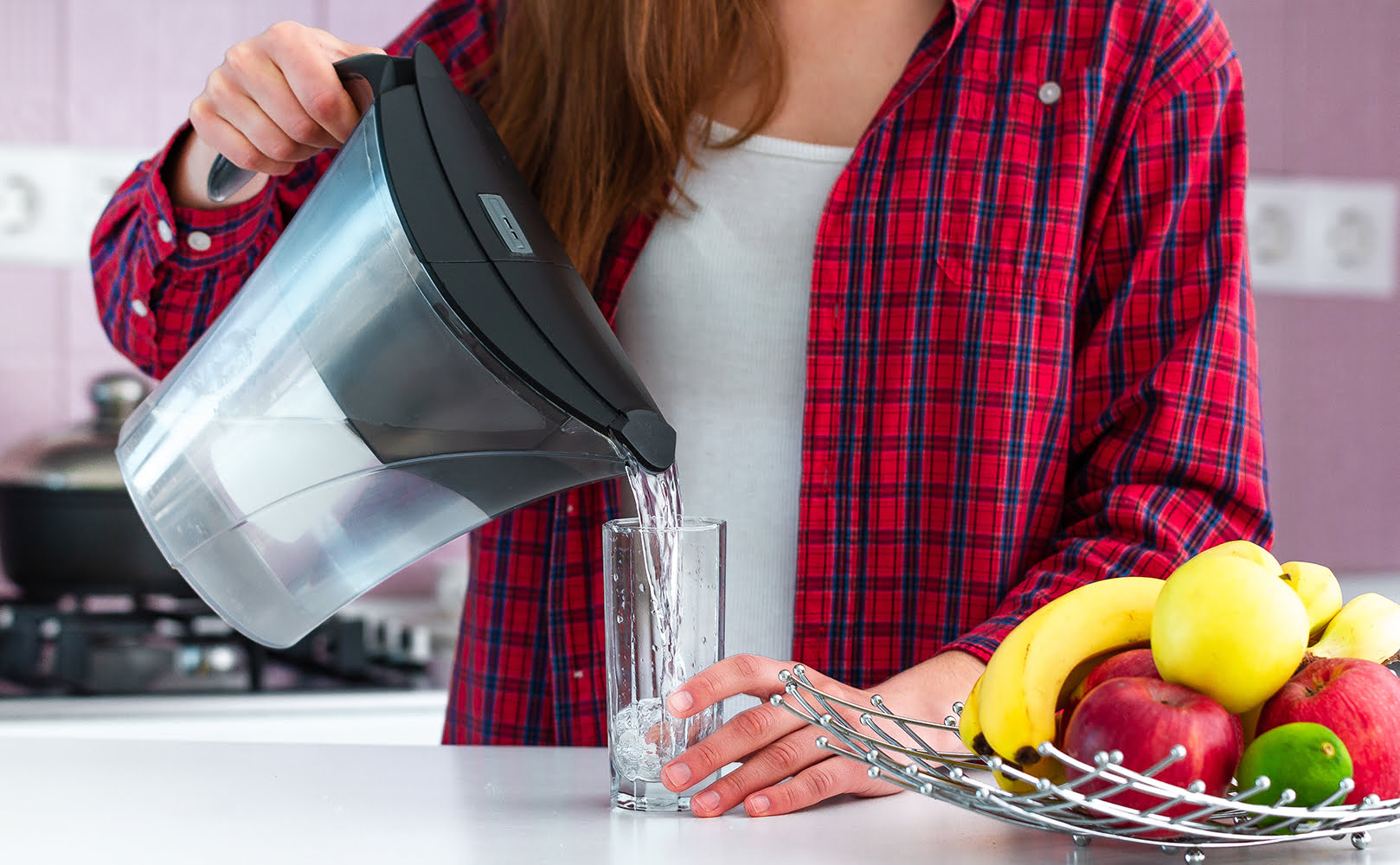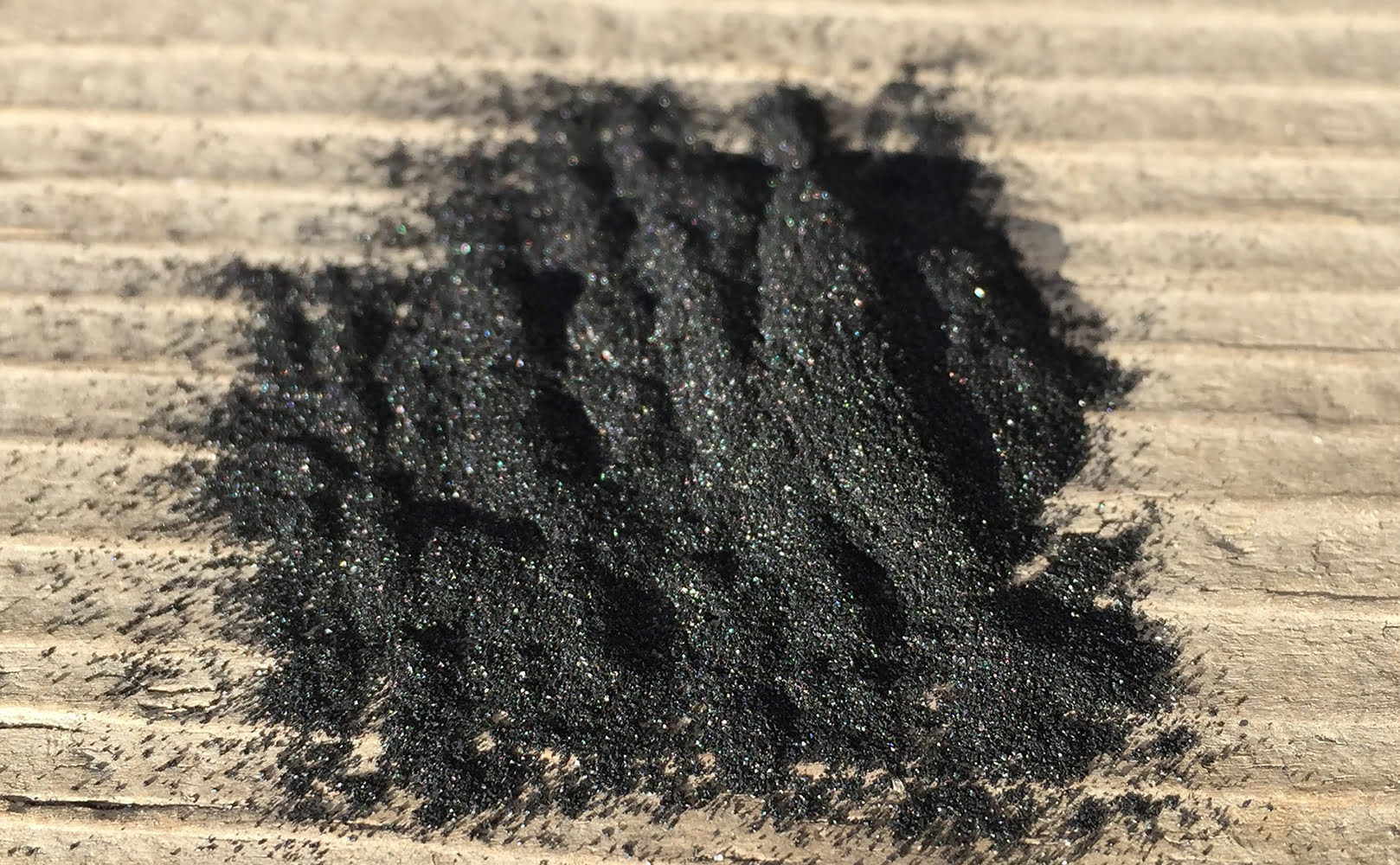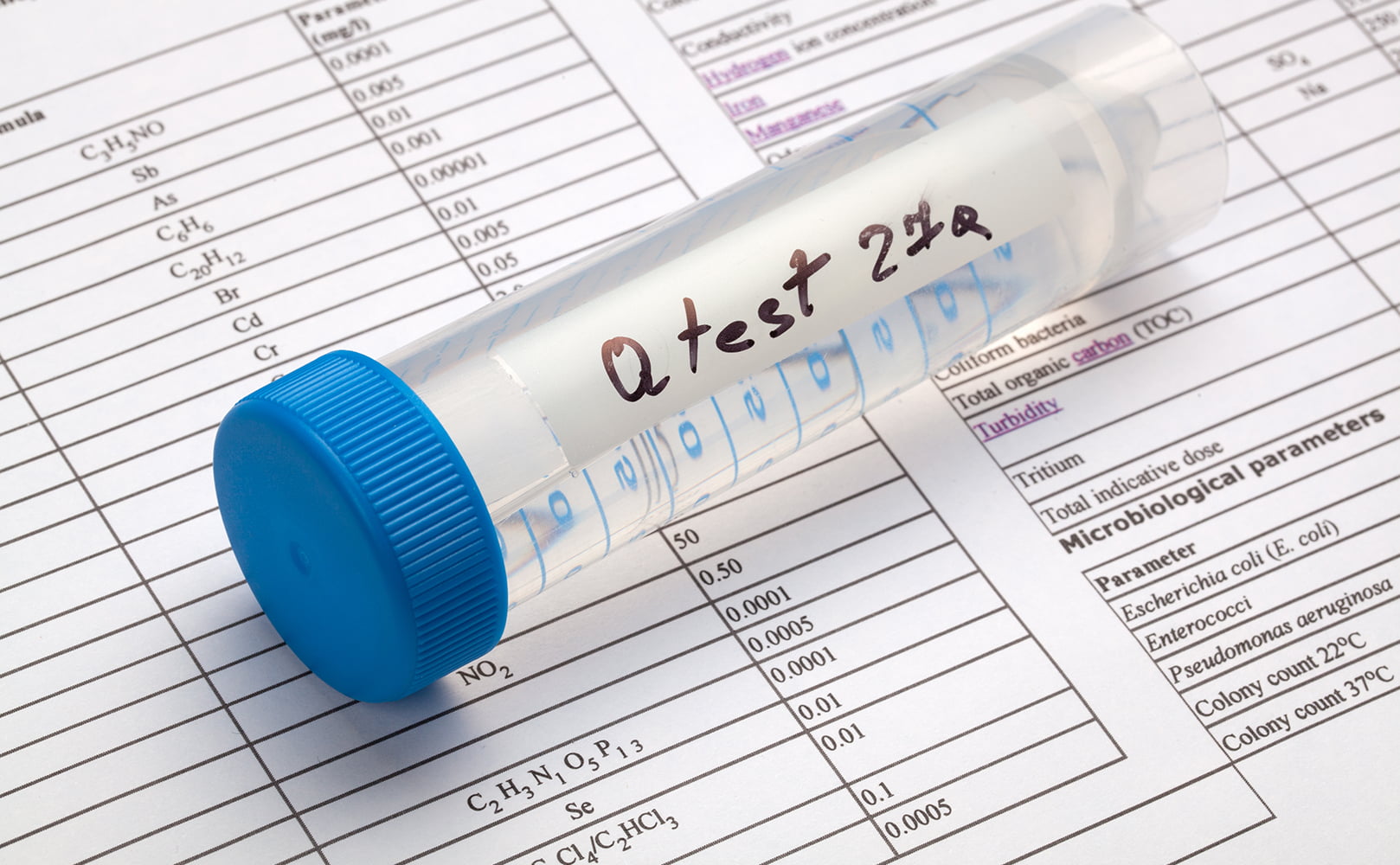Water Filter Pitcher or Faucet Filter: What’s Better in 2024?
Written by: Gene Fitzgerald // Last Updated: Feb 2, 2024
This page may contain affiliate links. If you buy a product or service through such a link we earn a commission at no extra cost to you. Learn more.
If you don’t like the taste of chlorinated tap water or want to ditch bottled water for good, it’s natural to gravitate towards in-house water filtration systems.
While most types of water filters are expensive and require permanent changes to plumbing, water filter pitchers and faucet water filters stand out due to ease of usage and low price tags. Plus, both ensure your water is free from contamination and tastes crisp and clean with no dubious scent, IF you choose a model that performs well.
That said, filter pitchers and faucet filters boast more similarities than differences. For example, they often have the same average filter lifespan. This makes the decision to choose between the two even more difficult.
In this short guide, we will highlight the pros and cons of each gadget to help you make the best buying decision.
Key Takeaways
- You should primarily base your decision on your filtration needs. Overall, water filter pitchers are more powerful than faucet filters in terms of contaminant reduction. Tip: Have your water tested!
- You should also consider NSF/ANSI testing and certifications of products, their durability, and filtration speed.
- If you don’t want to limit the amount of filtered water you can access at any given time and don’t like the thought of filling jugs repeatedly, then a faucet filter will be the better choice.
- A filter pitcher can be stored in the refrigerator for cooling.
Water Filter Pitchers
Water filter pitchers use a filter cartridge in their midst to clean water as it makes its way from the upper reservoir into the filtered water tank.
One of the best features of water filter pitchers is their ability to make your water smell and taste absolutely fresh, with no funky odors or metallic hints.
Moreover, few high-quality pitchers remove plenty of harmful contaminants like lead and other heavy metals, chemicals such as disinfection byproducts and pesticides, bacteria and salts.
They use a variety of filter media for this. Most prominent is activated carbon. But there are also ion exchange resins and ceramic filters for example.
Advantages of Filtered Water Pitchers
What’s unique about filtered water pitchers? Here is what we love about them and what makes them unique.
Better Taste and Smell
Water filter pitchers focus on providing drinking water that tastes and smells pristine. Most do a pretty good job and some perform downright excellent.
Removes Harmful Contaminants
Don’t judge the filter cartridges in pitchers by their size. They may be tiny but some are designed to remove a wide range of impurities.
Really good ones like the Clearly Filtered Pitcher can remove over 360 harmful contaminants from your water. This includes:
- Fluoride
- Microplastics
- Lead
- Arsenic
- Cadmium
- Chromium
- Disinfection byproducts
- Perfluorinated chemicals
- Chlorine
- Chloramine
- Microorganisms
- Pesticides
- Drug residues
- VOCs
Cooling
Do you know what’s better than a glass of filtered water? A glass of cold filtered water right when you need it. That’s where water filter pitchers take the cake thanks to their compactness. They easily fit most refrigerators.
Easy to Maintain
Convenience is the biggest advantage of water filter pitchers. Not only are they easy to use, but they are also very easy to maintain. Apart from cartridge replacements, these filters require only occasional cleaning.
Portability
The compact size of a filter pitcher makes it an ideal addition to your travel plans. You may easily carry yours to your holidays, outdoor picnics, or even to your office. No more spending hundreds of dollars on buying costly bottled water.
Disadvantages of Water Filter Pitchers
Here are a few disadvantages of water filter pitchers.
Replacement filters
Depending on your water quality, your pitcher may need 5+ replacements per year. If you continue to use an old spent filter, you may be exposing your family to a host of illnesses.
Limited Capacity
Water filter pitchers are the most compact and nifty filtration units, but that comes at the cost of limited capacity. On average, a standard pitcher can hold 8 to 12 cups of water.
For a single-person household, this size should not be an issue. However, with kids, pets and a big family, these pitchers won’t be able to provide drinking and cooking water for everyone at once.
Difficult to Clean
Most filter pitchers look almost identical. They have the same nooks, crannies and gaps that may look aesthetic but quickly become a nightmare to clean. They need to be soaked and scrubbed periodically to prevent mold from growing and keeping them hygienic.
Faucet-Mount Water Filters
As the name suggests, faucet-mount water filters are point-of-use systems mounted to a faucet or tap that purify water on demand. They are easy to install and require no permanent changes to plumbing, making them perfect for rentals.
Most systems do a good job at making your drinking water safe for consumption, provided that it is not highly contaminated.
They most commonly feature activated carbon, KDF filter media and sometimes even ion exchange resin.
In general, standard faucet water filters remove about the same amount of contaminants from your drinking water as a basic pitcher filter. Some PUR Advanced systems are even certified to eliminate pesticides, cysts and lead.
Advantages of Faucet Water Filters
Apart from improving the aesthetics of your water and potentially eliminating a wide range of contaminants, there are multiple advantages of using faucet water filters. Let’s go through them.
Easy Installation
Faucet-mount filters are the easiest to install water filtration systems. You don’t need to bring out your toolbox or hire a professional to set one up. Just remove the aerator of your existing faucet and twist in the one from your filter.
Most units feature a button to transition between filtered and unfiltered water quickly. For example, if you are doing the dishes, you can quickly shift to unfiltered water.
Compact
Faucet water filters are not bulky and don’t take up a lot of space on the sink. The compact size also ensures easy portability and maintenance.
Water on Demand
Unlike filter pitchers, you don’t have to wait for a faucet water filter to do its job. Just stick a glass under the tap, and there it is – pure filtered water.
Affordable
We love that you can easily buy a faucet water filter without breaking the bank. Besides, it’s way cheaper than buying bottled water that hurts your wallet as well as the environment. What’s more, who wouldn’t like to get rid of lugging around huge water containers?
Disadvantages of Faucet Water Filters
There are not many problems associated with these systems. Regardless, here are a few concerns we have:
Not Compatible with All Faucets
The biggest drawback of faucet water filters is that they are only compatible with standard-sized faucets. Unfortunately, there is no other way around.
Decreased Flow Rate
Compared to under sink and whole house water filtration systems, the flow rate from a faucet filter is considerably lower. As the cartridge begins to clog, you may notice a further decline in water pressure.
Frequent Filter Replacements
The filters need to be changed every few months, which can get exhausting pretty fast. Not to forget, the costs of replacements also add up.
Water Filter Pitcher vs Faucet Filter: Which to Choose?
You know how skincare brands have mini versions of their products so you can test them and decide if they work for you? In the realm of water filtration, water filter pitchers and faucet water filters allow you the same liberty to see how pure drinking water can change your life for good.
They both have limitations that are somehow justified, thanks to their economical prices.
That said, if you are looking for fuss-free filtration that you can take on the go, filter pitchers are the best choice. But if you don’t want to limit the amount of filtered water at one time, and don’t want the hassle of filling jugs repeatedly, a faucet-mount filter is a lifesaver.
Factors to Consider When Buying
Here are a few other things you should consider before deciding to buy either a pitcher or a faucet water filter.
Contaminants in Your Water
The best water filter pitcher you can buy is one customized to your water problem. The same applies to faucet filters. Therefore, the most important step is to get your water tested. A water test will highlight the level and concentration of each contaminant in your water supply.
You can either request a Consumer Confidence Report free of charge from your local water supplier or use a DIY water test kit at home.
Alternately, the safest solution is to send a water sample to a certified lab to get accurate results.
NSF/ANSI Testing and Certifications
NSF/ANSI testing and certifications set the benchmark for the performance of water filtration systems. Once you know what contaminants you are dealing with, look for the specific NSF certifications to ensure your pitcher or faucet filter features a cartridge that can remove or reduce those nasty impurities.
To be honest, we love systems that are tested according to NSF standards because it implies the manufacturer’s confidence in their product. Not to mention, the peace of mind it offers to consumers who have a hard time deciding between multiple brands.
Effectiveness
Many water filter pitchers feature a tiny amount of activated carbon that doesn’t do much in terms of purification. The same goes for faucet filters.
In other words, regardless of pitcher or faucet filter, you need to select carefully. If possible, choose a filter that sports ion exchange resin in combination with activated carbon.
Not to forget, good-quality pitchers now feature ceramic filtration technology for even better purification.
Durability
Most water filter pitchers are made of BPA-free plastic that can last you many years before breaking down. On the other hand, standard faucet water filters feature a plastic or stainless steel exterior.
Since the cartridge replacement time for both gadgets is similar (1-3) months, you must look for a unit that’s sturdy and will last you for a long time. A filter less prone to wear and tear can last you many years before giving up.
Filtration Speed
Filter pitchers take about 10-30 minutes to process one full jug. This is rather slow and owed to the fact that these units rely on gravity to push water through the filter element.
In comparison, a faucet filter will deliver water much quicker since it utilizes external water pressure.
If you have a big family, you may not want to keep up filling pitchers repeatedly and waiting for them to filter. Throw in the fact that each pitcher can hold a maximum of 12 cups, you might find yourself out of purified water if you forget to fill those pitchers up.
Installation
Faucet water filters can only be used with standard faucets. So if you have a pull-out faucet, spray faucet or any other unconventional faucet type, a faucet filter will not be an option for you. Water filter pitchers are installation-free and will do just fine.
If you have any questions about water filter pitchers vs faucet water filters please don’t hesitate to leave a comment below!
Information provided on BOS is for educational purposes only. The products and services we review may not be right for your individual circumstances.
We adhere to strict editorial guidelines. Rest assured, the opinions expressed have not been provided, reviewed, or otherwise endorsed by our partners – they are unbiased, independent, and the author’s alone. We fact-check all content for accuracy. It is accurate as of the date posted and to the best of our knowledge.




